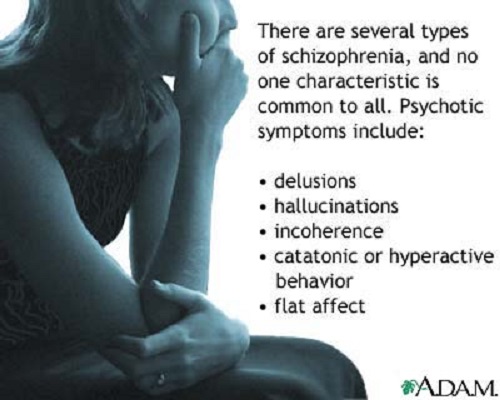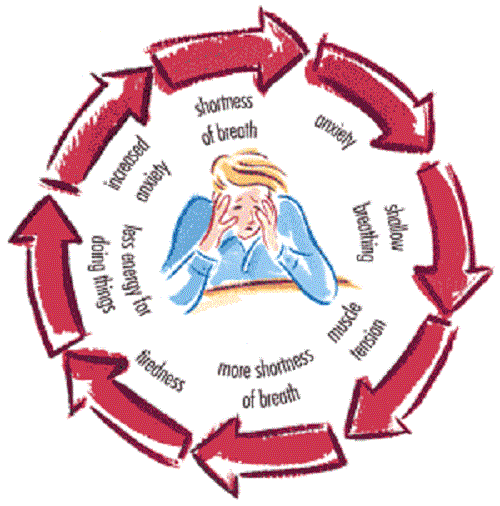Difference between Psychosis and Neurosis
What is Psychosis?
A psychosis is a symptom of a mental illness or a brain disorder, which entails a person losing touch with the real world.
A person who has a psychosis can thus show what are referred to as psychotic symptoms, such as hallucinations or delusions.
When a psychotic person is delusional they may show signs of grandiose thinking or extreme paranoid behavior. They may therefore think that they have special abilities or that people are out to get them.
Psychosis can occur temporarily in people who suffer a trauma such as bereavement, but can even happen if a person is sleep deprived.
Psychosis is a feature of mental illnesses such as schizophrenia and bipolar disorder (manic depression) or schizoaffective, and schizophreniform disorder, but psychosis can also be due to organic brain disorders.
Catatonia and disorganized thoughts are also classified as psychosis. People may act in a very agitated way if they have catatonia and people who have disorganized thinking may speak in a very nonsensical and illogical manner.
Hallucinations can take the form of people seeing or hearing things that do not exist. They may hold conversations with people who do not exist, except to them.
Medical problems can sometimes lead to psychosis. Psychosis that are present in mental illnesses often have a genetic component. Disorders with psychoses are thus often inherited.
It is important that all possible disorders that can be causing the problem be tested for. In other words it may not be a mental illness that is causing psychotic behavior.
A stroke, dementia, or even encephalitis or a lack of vitamin B12 can cause psychoses.
Psychosis causes a severe impairment of everyday functioning. Most people with these conditions are severely affected and may be unable to relate to others and may withdraw from society.
Psychotic disorders carry a high risk of self-harm and an inability for self-care.
Medications, usually antipsychotics, are used to treat severe psychotic symptoms. Psychotherapy and counseling may also be used to help people deal with their problems.
What is Neurosis?
A neurosis refers to a group of mental disorders including: anxiety, phobias, obsessive-compulsive disorder, depression and hysteria. Neurosis is not a specific mental disorder.
It does not include hallucinations or delusions, and people are well aware of reality but they tend to react and respond in very maladaptive ways to their environment.
People with neuroses do not handle stress well and have developed detrimental responses to it. The extent and severity of neuroses is very variable.
The type of neurosis that develops is also very variable and can include inappropriate levels of aggression, perfectionism, obsessions, negativity and extreme anxiety.
Research has indicated that hereditary plays a role in the development of neuroses, along with how a person is raised and the environment that they live in.
Neuroses are generally not as severe as psychoses, in the impact that they have on a persons’ everyday functioning.
However, neuroses can still be very crippling with people being unable to reach their full potential as a result of being neurotic.
Neuroses though debilitating don’t carry as high a risk of self-harm or lack of self-care as psychotic disorders do.
That is not to say that neurotic people don’t harm themselves, but rather that the incidence of self-harm happening is not as high for neurotics as it is for psychotics.
Various combinations of medications, psychotherapy and counseling can help people to overcome their neuroses.
What is the difference between Psychosis and Neurosis?
Definition
Psychosis is a symptom of an underlying disorder, while neurosis is a group of disorders.
Reality Check
Psychosis is when a person has lost touch with reality; this is not the case for a neurosis.
Hallucination
Psychosis includes hallucinations and delusions; this is not the case for neurosis.
Stress
Neurosis is a maladaptive response to everyday stress, while psychosis is more than this.
Degree of Impairment
Psychosis leads to severe impairment of normal everyday functioning, while neurosis leads to mild impairment of normal everyday functioning.
Self Harm
Psychosis carries a high risk of self-harm, while neurosis tends to not carry as high a risk of self-harm.
Diagnostic criterion
Psychosis is a diagnostic criterion of schizophrenia, bipolar disease and schizoaffective disorder, while neurosis is not.
Component of OCD
Neurosis includes obsessive compulsive disorder and many anxiety disorders and phobias. Psychosis is not a symptom or name for these disorders.
Medication
Psychosis is treated with antipsychotics while neuroses are not treated this way.
Table comparing Psychosis and Neurosis
PSYCHOSIS |
NEUROSIS |
| This is a symptom of a disorder | This is a group of disorders |
| A person has lost touch with reality | A person has not lost touch with reality |
| Hallucinations and delusions are common | Hallucinations and delusions are not present |
| More than a maladaptive response to everyday stress | Is a maladaptive response to everyday stress |
| Causes severe impairment of everyday functioning | Causes mild impairment of everyday functioning |
| Higher risk of self-harm | Lower risk of self-harm |
| Diagnostic criteria of schizophrenia, bipolar disorder, schizoaffective disorder | Not a diagnostic criteria of schizophrenia, bipolar disorder, schizoaffective disorder |
| Does not include obsessive compulsive disorder, anxiety disorders and phobias | Includes obsessive compulsive disorder, anxiety disorders and phobias |
| Is treated with antipsychotic medications | Is not usually treated with antipsychotic medications |
Summary of Psychosis and Neurosis:
- A psychosis is a symptom of a disorder in which a person loses touch with reality. A person with a psychosis often hallucinates or has delusions.
- A neurosis is a group of disorders in which a person reacts to everyday stress in a maladaptive fashion.
- Disorders characterized by psychosis include schizophrenia, bipolar disorder and schizoaffective disorder.
- Examples of neuroses include: obsessive-compulsive disorder, anxiety and phobias.
- Psychosis has a more negative impact on a persons’ ability to function in everyday life than does a neurosis.
- Psychosis is treated with antipsychotics while neurosis is not usually treated with antipsychotics.
- In both neuroses and psychoses a combination of psychotherapy, medication and counseling may be used to help the person.
- Both these conditions are debilitating for a person but psychosis is worse in the sense that the person is unaware of reality.
- Difference Between Rumination and Regurgitation - June 13, 2024
- Difference Between Pyelectasis and Hydronephrosis - June 4, 2024
- Difference Between Cellulitis and Erysipelas - June 1, 2024
Search DifferenceBetween.net :
Leave a Response
References :
[0]American Psychological Association. Diagnostic and statistical manual of mental disorders, 4th edition. Washington: American Psychological Association, 1994. Print.
[1]Boeree, C. George . “A Bio-social Theory of Neurosis” Gen. Psy. Neurosis. C. George Boeree, 2017, http://webspace.ship.edu/cgboer/genpsyneurosis.html
[2]Felman, Adam. “Neuroses and neuroticism: What's the difference?” Medical News Today. Healthline Media, 2017, https://www.medicalnewstoday.com/articles/246608.php
[3]"Image Credit: https://saspdhealth.wikispaces.com/What+is+Schizophrenia%3F?responseToken=1835b1177f727ac2c6caa3475147e272"
[4]"Image Credit: http://thecollaboratory.wikidot.com/general-psychology1-fa11"


